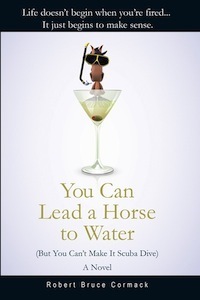Nobody Ever Bought Anything From a Clown

The man who said that was Rosser Reeves, former chairman of Ted Bates Advertising. He obviously never went to Disneyland. Back in the sixties, I went to Disneyland and bought a balloon from a clown. I didn’t know about Rosser Reeves in those days. If I had, I would have sent him my balloon.
Reeves was particularly critical of another copywriter, a man named Stan Freberg. His wacky Chun King commercials were selling a lot of chow mein. Stan must have gone to Disneyland. Every commercial he did smacked of good experiences with clowns. Maybe Reeves had a fear of clowns. “Send In the Clowns” was his least favorite song.
Reeves wrote in his book, Reality of Advertising, that advertising isn’t art. It’s the practice of probability, meaning a campaign will have a probable rate of return if you follow one principle: Sell exactly what you are.
To Reeve’s methodical mind, Freberg was selling fluff, laughs, funny scenarios that did nothing to show product benefit. It was slapstick, a cry for attention. So why was Freberg selling so much chow mein while Reeves was selling Anacin?
A fluke? An anomaly? Whatever Freberg was doing, it didn’t diminish Reeves’ principles. If anything, it confirmed them. People grow tired of chow mein. They don’t grow tired of Anacin.
So how could two diametrically opposed copywriters capture public interest? The answer is simple. They weren’t diametrically opposed at all. Both men believed in product as hero. Reeves tightened ropes in the brain; Freberg had some guy selling chow mein in an elevator (to Chinese, in fact).
Whether we associate headaches with a tightening rope, or chow mein with a crazy elevator pitch, the goal is retention. We retain what interests us. Can we take a funny sales pitch seriously? Obviously, Freberg proved we could.
So did Joe Sedelmaier’s famous commercials for Wendy’s. Remember “Where’s the beef?” (written by Cliff Freeman, copywriter at Dancer Fitzgerald Sample). It’s still regarded as one of the most memorable catchphrases in history. Sure, it was funny. Clara became America’s favorite senior. But the message kept hammering home the difference between Wendy’s and McDonald's. Today we still use the line to question the substance of an idea, event or product.
If we look at Leo Burnett’s “Jolly Green Giant,” it was considered pretty funny at first. Burnett actually inherited the green man, since it was already a mascot for the Minnesota Valley Canning Company. Seems they’d developed a new pea that was small but “deliciously tender,” so they called it “Green Giant.” Burnett came along and put “Jolly” in front and gave the giant a green leafy suit. Funny as that sounds, that mnemonic still sells peas to this day.
The substance of an idea isn’t a principle in the end. It remains what interests us and what we like. Rosser Reeves liked tightening a rope, Freberg and Sedelmaier liked making us laugh.
As copywriters, we’re still human beings. We have brains, we have likes and dislikes. The best rule of thumb is to use ourselves as the first focus group.
Stan Freberg once said, “If you don’t like an ad, why should anybody else? We’re all consumers…That’s why I always create commercials for myself first of all. If I think it’s a great commercial, I figure the rest of the people might think so, too. I haven’t been wrong so far.”
“To thine own self be true,” in other words. You have to listen to that internal voice, discounting, of course, all those other voices filling us with doubt. Sometimes doubt is a good thing. The trick is to temper doubt and enthusiasm with one question: Does this sell the product?
I don’t discount anything Rosser Reeves has said—or believed. Reality in Advertising is a great book. Probability has its place, just as memorability has its place.
When Reeves answered a question pertaining to copywriting, he said, “No, sir, I’m not saying that charming, witty and warm copy won’t sell. I’m just saying I’ve seen thousands of charming, witty campaigns that didn’t sell.”
He’s right, of course. Many funny campaigns didn’t sell—and still don’t sell. In between the strategy and the concept, something got lost. We paid more attention to the humor than the product. When someone says, “I loved that line,” but can’t remember the company name, then you’ve failed.
That’s not to say hard sell doesn’t fail. It fails at a greater rate than humor. The reason? It’s boring. You may think you’re paying respect by sticking to the solid facts, but that’s not selling. That’s recounting. Anyone can recount.
It’s like the car salesman rattling off all the car’s features. Sure, we want to know the size of the engine. Isn’t that all available in the brochure? Now we’re talking face to face. Try being a little, I don’t know, human. I mean, don’t seventy percent of people buy cars based on color alone?
In other words, there’s emotion involved in any purchase. Ignoring emotion is like ignoring a video of a puppy. Who doesn’t love a video of a puppy? There's a reason the saying goes “Capture their hearts and minds.” You can’t have one without the other. They’re inextricably linked.
And if we need to capture both hearts and minds, if emotion plays a role in any purchase, then the question isn’t whether hard sell works better than soft sell, it’s simply what brings the heart and mind together.
Maybe it is that rope tightening in the brain, or maybe it’s Clair going “Where’s the beef?” Funny or serious, hard sell or soft, clown or doctor in a white coat, we buy based on intuition. That intuition is only probable when we make it probable through the human process of believing.
Do we believe in humor? Do we believe a clown can sell us anything? Somewhere in some box I still have that balloon. Deflated, yes, but no less of a memory than anything I’ve bought anywhere else.
We’ll buy from anyone, as long as we feel it. Nothing else matters.
Do you agree? Are we consumers based on level of interest and engagement? Let me know at: rcormack@rogers.com
Robert Cormack is a freelance copywriter, novelist and blogger. His first novel: “You Can Lead a Horse to Water (But You Can’t Make It Scuba Dive)” is available online and at most major bookstores. Check out Yucca Publishing or Skyhorse Press for more details (you can also buy from them).

Articles from Robert Cormack
View blog
Is “Succession” explaining Russia's leader better than the media? · “In modern war, you will die lik ...

It's a dog's life. Even dogs know that. · “If it wasn’t for received ideas, the publishing industry ...

This could (and should) change your writing entirely. · “It’s better to fail at originality than suc ...
You may be interested in these jobs
-
Treatment Program Assistant Manager – Men's Program
Found in: Talent CA C2 - 20 hours ago
The Salvation Army Vancouver, Canada Full timeDescription · The Treatment Assistant Manager – Men's Program is responsible for oversight of Harbour Light's bed-based substance use treatment and recovery services for adult men. They supervise the Men's Treatment counselling and support staff, program implementation, and admi ...
-
general supervisor
Found in: Talent CA 2 C2 - 2 days ago
Construction & More Corp. Hamilton, CanadaEducation: · Expérience: · Education · College/CEGEP · Tasks · Prepare production and other reports · Supervise workers and projects · Co-ordinate and schedule activities · Oversee apprenticeship training · Recruit and hire workers and carry out related staffing actions · Train ...
-

Associé/ Associée Temps Partiel
Found in: Talent CA C2 - 1 week ago
Winners Greenfield Park, Canada Part timeSolita a découvert l'AVENTURE au travail chez TJX · Solita trouve que chaque jour est une nouvelle aventure dans nos magasins et, selon elle, c'est ce qui rend son travail si intéressant. Les défis, la résolution de problèmes et la variété constante ne sont qu'une partie de tout ...


Comments
Robert Cormack
7 years ago #6
Robert Cormack
7 years ago #5
Robert Cormack
7 years ago #4
Robert Cormack
7 years ago #3
Robert Cormack
7 years ago #2
Robert Cormack
7 years ago #1